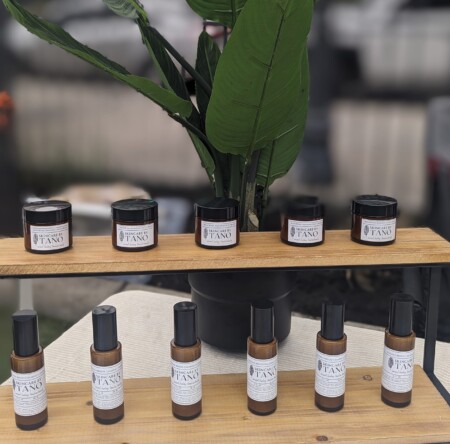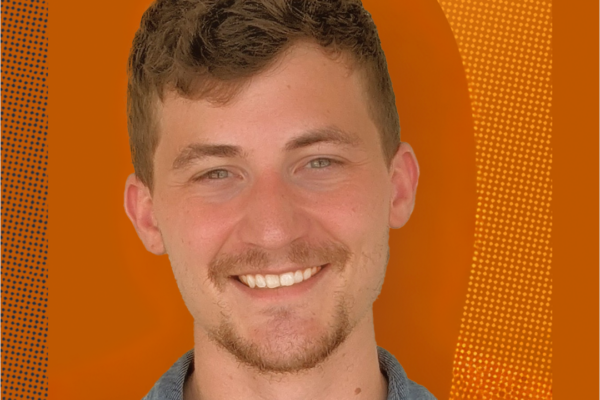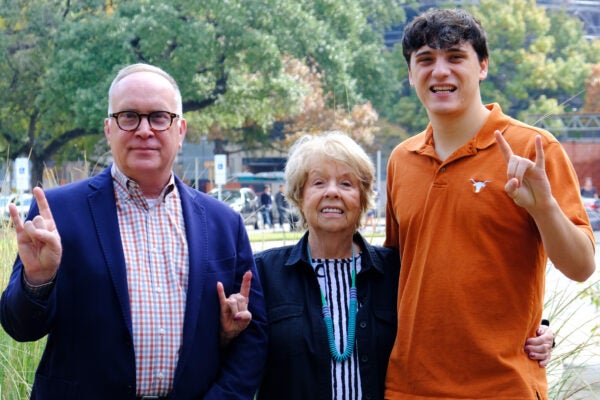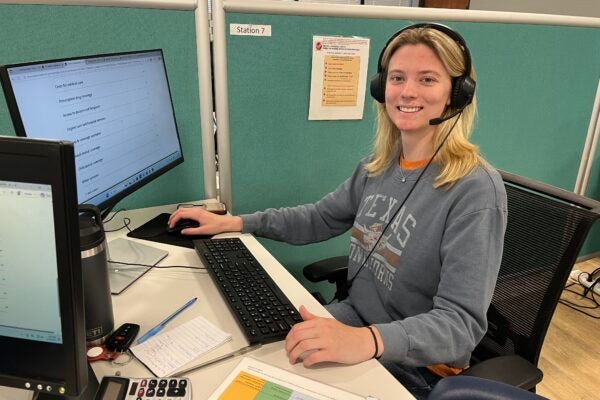The Banana Cure
How 2 Texas Student-Entrepreneurs are Harnessing the Therapeutic Properties of a One-of-Kind First-Aid Treatment
by Alice Popovici
Sean Finney was surfing on a remote beach in Brazil, near the town where he and his family lived, when a wave crashed on top of him, dragging him along a reef. He was just 9 years old. “The accident mangled my right leg from knee to ankle,” Finney remembers. “My dad was worried I was going to bleed out on the way to the hospital, so he was going to put a tourniquet on my leg.”
They were four hours from the nearest hospital. That’s when a local resident stepped in, chopping down a banana tree and squeezing the sap onto the wound.
“It stopped the bleeding almost immediately,” says Finney, MBA ’24. The insight stayed with him, and when he arrived at McCombs in Fall 2022, he teamed up with fellow student and fellow outdoor enthusiast Branson Berger to build a new company around this little-known treatment.

Although their initial thought was to market the ointment to outdoor enthusiasts such as themselves — Berger is a rock climber who runs ultramarathons and Finney is a mountain biker and surfer — they’ve since pivoted into skin care. Recent research studies of their product found not only anti-aging properties, but also significant collagen-boosting abilities.
McCombs has been a good test lab for their ideas. The school has helped them build momentum around the product, including their winning the top prize in the Texas Venture Labs Investment Competition in December 2023. Their startup, Tano Pharmaceuticals, was named as a shortened version of “plátano,” the Spanish word in some countries for “banana.”
The entrepreneurs, both of whom served in the military before coming to McCombs, interviewed veterans as part of their research and hoped to develop a first-aid product for the military. But because marketing a medical product would have required a U.S. Food and Drug Administration approval process that would cost tens of millions of dollars and take up to several years, they had to pivot.
Their newest research prompted Finney and Berger to focus first on developing the sap into a natural skin care line complete with a lotion, an anti-aging face cream, and a serum. Having a ready source of banana trees is essential.
Now, they are getting ready to launch.
“The fascinating thing about Tano is that they see the world both in the micro and the macro,” says Josh Alexander, a McCombs professor of instruction who taught Berger and Finney in an MBA course, “New Venture Finance.” “They’re looking at it in a very cogent, stepwise function: ‘So, who can I help today?’ But then, how does that set them up better to help other people in the future?”
For a while, Finney had 11 banana trees growing in his backyard in Austin. Now, as he and Berger begin to scale the business, they have teamed up with a banana farm in Oahu, Hawaii, harvesting the sap from the trunks of chopped-down trees. They are also working with a consultant in the cosmetics and pharmaceutical industries on studies to ensure the product is shelf-stable while they explore additional applications.
Creating a long-term strategy
Berger and Finney eventually want to develop a medical product aimed at the military markets.
“Our thoughts were, we could start with more of a skin care approach and then utilize that revenue to actually go ahead and help us raise (capital),” Berger says. “And also use the revenue from that business to then fund the FDA process.”
Berger and Finney plan to release the skin care product line this fall, selling directly to consumers and to Med Spas around Austin before targeting large retailers such as Sephora.
Alexander, whose “New Venture Finance” class teaches students the nuts and bolts of fine-tuning a business model before approaching investors, says he encourages students to think about their product in a “multidimensional” way. That means factoring in variables such as the investor, the end consumer, and deliverables — and how they fit together.
“It’s challenging the students to think about not just the product market . . . It’s also thinking about their business as a product,” Alexander says.
Having watched Berger and Finney address these questions as they developed a scalable strategy in the class, he says, “I think they’ll be very successful when it comes to a (fund) raise in the near future.”
About this Post
Share:


